Contributor: Morgan Motzel
Work and Life is a two-hour radio program hosted by Stew Friedman, director of the Wharton Work/Life Integration Project, on Sirius XM’s Channel 111, Business Radio Powered by Wharton. Every Tuesday from 7 pm to 9 pm EST, Stew speaks with everyday people and the world’s leading experts about creating harmony among work, home, community, and the private self (mind, body, and spirit).
This week on Work and Life, Stew Friedman spoke with Allison Karl O’Kelly, Founder and CEO of MomCorps, about the growing consciousness of the value created by workplace flexibility arrangements. O’Kelly discussed how engaging your networks, managing stakeholder expectations, and having honest personal conversations can bring about work-life satisfaction for individuals in new and unexpected ways.
The following are edited excerpts of Friedman’s conversation with O’Kelly:
Stew Friedman: The conversation about workplace flexibility has changed these days. We’re operating in a different landscape now where there’s more fertile ground for innovation, and where MomCorps, as a staffing agency, can push its client firms to adjust their employment policies and become more flexible.
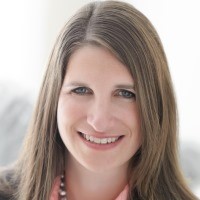 Allison Karl O’Kelly: Yes. I think that companies now, for the most part, want to make flexibility work. This is especially true when you’re talking about the Human Resources department of many organizations. They understand the importance of flexibility. Now it’s about understanding how to make flexible arrangements work. I think that once the mindset is there, it’s a lot easier to help companies implement strategies to make it work.
Allison Karl O’Kelly: Yes. I think that companies now, for the most part, want to make flexibility work. This is especially true when you’re talking about the Human Resources department of many organizations. They understand the importance of flexibility. Now it’s about understanding how to make flexible arrangements work. I think that once the mindset is there, it’s a lot easier to help companies implement strategies to make it work.
SF: How do you get that initial mindset shift? What are your methods for making that happen for an employer?
AOK: As far as the mindset shift is concerned, I see that most people have that already. We don’t spend a lot of time trying to convince people why work flexibility is good. What we do spend a lot of time doing is trying to just get companies to understand the quality of candidates for a given role and to grasp why they can get a better candidate if they’re willing to provide some flexibility to him or her. We often talk about flexibility as being another form of currency. Sometimes it can actually be a way to save money – whether that’s not paying for full-time work that can be done part-time or not paying for office space. We’re certainly not asking companies to hire someone flexible who is not the right person for the organization, but hopefully they can quickly understand that if they give up a little bit on the flexibility piece, they are going to get an amazing candidate that they otherwise might not be able to get.
SF: They can maybe even get a better work method out of it too, in the experiment of trying a new way to get things done.
AOK: That’s also important. We hear over and over again about folks who work on a part-time basis and how amazingly productive they are. I personally think that’s because when people are treated like adults and they’re given that level of flexibility they’re just so much more loyal to their employers. They really want to perform well and do a good job for them.
SF: I’ve found that in order to make any kind of alternative work arrangement work, it has to be not only something that is good for you, but also beneficial for your employer, and even more, for your family and your community. I like people to think of creating what I call “four-way wins” among these four domains of their lives. I believe thinking that way really helps you negotiate effectively because you’re thinking from the point of view of the people around you and not just your own needs. Is that an idea that resonates with your approach?
AOK: Absolutely. We talk about that a lot when we are giving advice, not only just to our candidates, but also when we’re simply talking or writing on the subject – it really is so important that it’s not just about you. Certainly, if you’re going to ask for a flexible work arrangement, in your head it is about you, but you also need to figure out why the employer should be good with what you’re suggesting. There could be so many reasons for that. Cost savings is always a good one, but especially if you’ve been at a company for a long time, retention is also very important.
For example, maybe there are opportunities for you to bring somebody else on, and you can train that person so that the company ends up spending the same money they’re spending now but for two people. They’re not going to have that work otherwise. That’s why it is so essential to figure out what is most important to your employer. Perhaps it’s really important to them that you are at a particular meeting every Friday, and so you will make sure that you’re at each of those meetings. That, then, becomes part of your deal. Ultimately, I think you need to find a way for the employer to feel comfortable with your idea and feel as though the company is getting something valuable out of this arrangement, rather than simply doing you a favor.
SF: That’s a critical theme we’re going to come back to again and again throughout the Work and Life show. It’s really essential because what many employers fear, of course, is that when people ask for alternative work arrangements that they, as the employer, are going to lose something. What they have to be shown is that they’re actually going to gain something. It sounds like you do a lot at MomCorps to try to make that happen.
AOK: Absolutely. I agree that this idea is critical. Gone are the days when your employer would say, “Let’s just do this because I really like Allison, and she’s a nice person.” We don’t have the money or the time for that these days. First of all, you have to be somebody who is very valuable to the organization, and, second of all, whether you are already there or not, you need to prove why you are valuable to the organization and why allowing you to have an arrangement that might be different from what the general employee base has is actually going to be good for them as the employer and not get in the way of doing business. As we know, at the end of the day it is business, and they need to make sure that they are able to meet their outlined goals and objectives.
O’Kelly zeroes in on how organizations and employees can create mutual value by having honest conversations in open and trusting environments. Have you ever been a part of a workplace conversation with colleagues or managers in which you realized that your seemingly conflicting interests could both be realized through a creative solution? Join us in the comments below with your thoughts and experiences.
To learn more about O’Kelly’s work, visit https://www.momcorps.com.
Tune in to Work and Life next Tuesday, April 22 at 7 PM Eastern on Sirius XM Channel 111 for conversations with Doug Conant, Chairman of Kellogg Executive Leadership Institute, and former CEO and President of Campbell Soup, and Brigid Schulte, Washington Post reporter and author of Overwhelmed: Work, Love, and Play When No One Has Time Visit Work and Life for a full schedule of future guests.
About the Author
 Morgan Motzel is an undergraduate junior in the Huntsman Program in International Studies and Business at Penn focusing on Management and Latin America.
Morgan Motzel is an undergraduate junior in the Huntsman Program in International Studies and Business at Penn focusing on Management and Latin America.
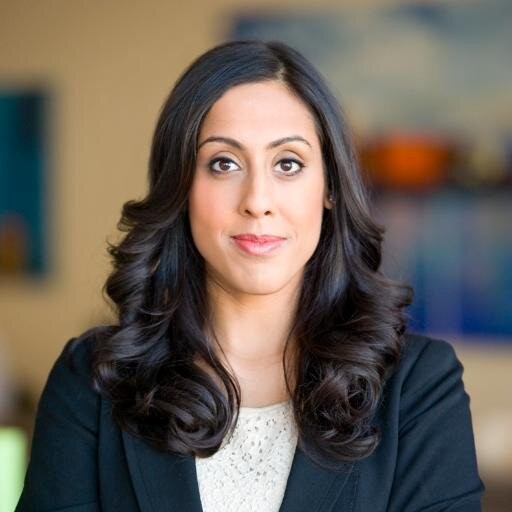 I’ll frame it in a short story for you. A few years ago, a leading New York-based law firm realized something peculiar. It started when the CFO noticed that the Millennial associates at the firm were billing fewer hours than the firm’s historical average. This was strange because they were giving the Millennial associates more work than previous cohorts, not less. More importantly, because law firms bill by the hour, this was also concern for the business. When the senior leadership team started to dig into this, they discovered that a group of 50 or 60 associates had all joined the firm as a class and created their own Twitter or chat-like tools to help each other solve cases faster. The communication included questions like “Where can I find this legal citation?” or “Does anyone know that law school case we did? I’m working on a similar case right now.” Over time, this became a rapidly productive community that senior leaders had no idea about, but that was actually changing the bottom line. Typically senior leaders would see this as a concern, but they ended up using this learning to their benefit.
I’ll frame it in a short story for you. A few years ago, a leading New York-based law firm realized something peculiar. It started when the CFO noticed that the Millennial associates at the firm were billing fewer hours than the firm’s historical average. This was strange because they were giving the Millennial associates more work than previous cohorts, not less. More importantly, because law firms bill by the hour, this was also concern for the business. When the senior leadership team started to dig into this, they discovered that a group of 50 or 60 associates had all joined the firm as a class and created their own Twitter or chat-like tools to help each other solve cases faster. The communication included questions like “Where can I find this legal citation?” or “Does anyone know that law school case we did? I’m working on a similar case right now.” Over time, this became a rapidly productive community that senior leaders had no idea about, but that was actually changing the bottom line. Typically senior leaders would see this as a concern, but they ended up using this learning to their benefit.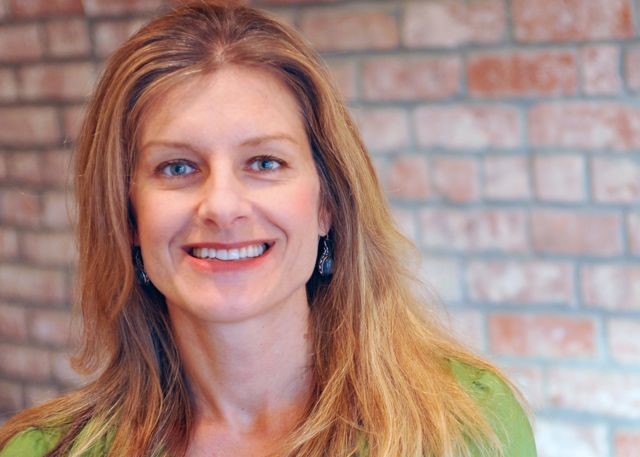 She began her career as a journalist, and reported for American Public Media’s
She began her career as a journalist, and reported for American Public Media’s  Liz Stiverson is a 2014 MBA candidate at The Wharton School.
Liz Stiverson is a 2014 MBA candidate at The Wharton School. In general, when people study work/life topics, they either study big, high-level organizational policies like parental leave and flex-time, or they focus on the individual level and the strategies and techniques that best help people own their work/life balance. My research team was really interested in what’s happening in the middle, when individual people are managing work and life in a specific department or division at work, and how the nature of the work environment impacts their experiences. Not surprisingly, we did find that people who worked longer hours tended to have more conflict between their work and family lives – it’s a lot harder to manage everything if you’re working 80 hours than if you’re working 40. But we found that it also really depended on the work environment itself. The study looked at women in academic medicine, and found that if women were in a department that was really flexible and supportive of women’s careers, they could work longer hours with less work-life conflict.
In general, when people study work/life topics, they either study big, high-level organizational policies like parental leave and flex-time, or they focus on the individual level and the strategies and techniques that best help people own their work/life balance. My research team was really interested in what’s happening in the middle, when individual people are managing work and life in a specific department or division at work, and how the nature of the work environment impacts their experiences. Not surprisingly, we did find that people who worked longer hours tended to have more conflict between their work and family lives – it’s a lot harder to manage everything if you’re working 80 hours than if you’re working 40. But we found that it also really depended on the work environment itself. The study looked at women in academic medicine, and found that if women were in a department that was really flexible and supportive of women’s careers, they could work longer hours with less work-life conflict.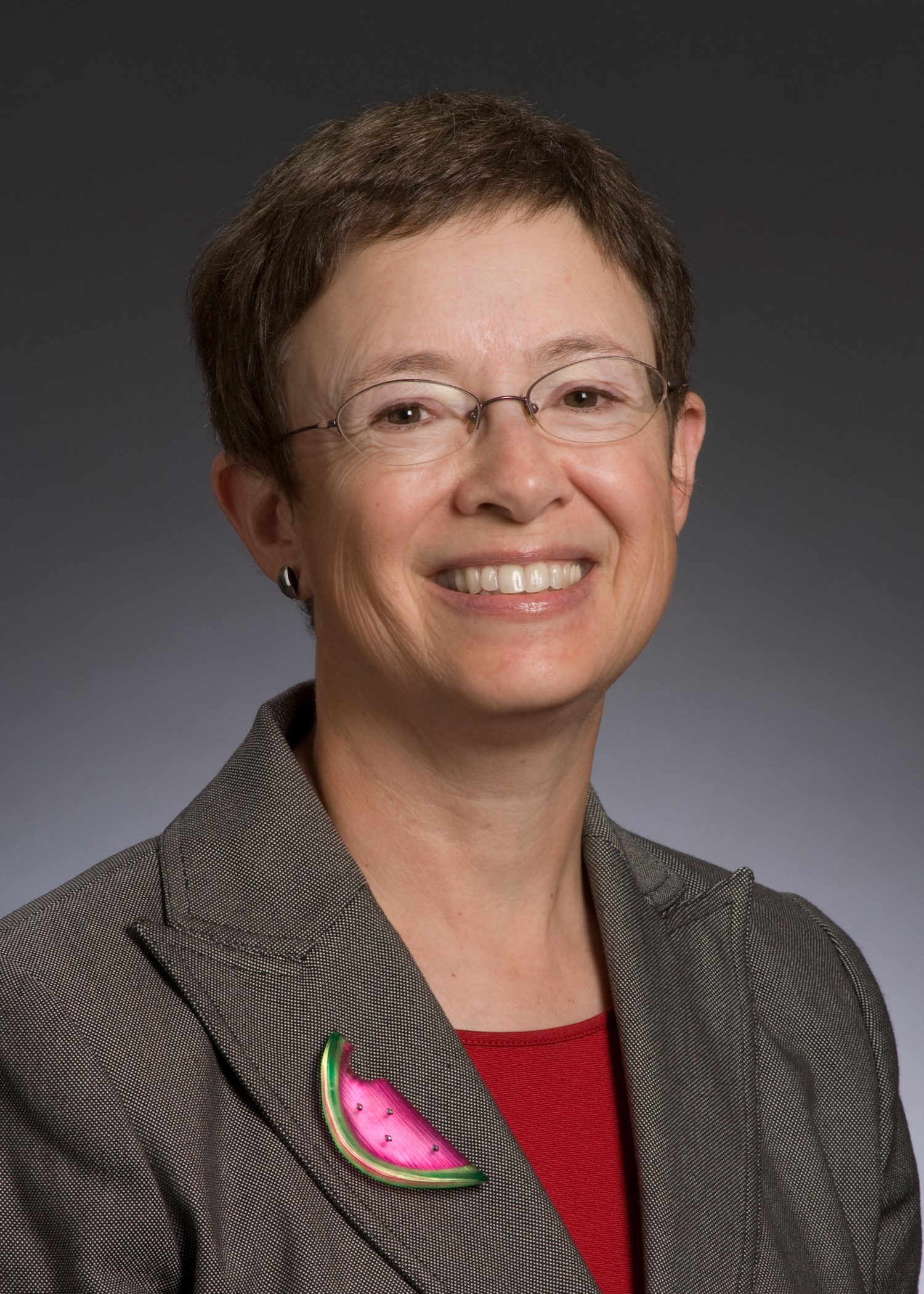 The work that I did on how women manage tradeoffs throughout their adulthood is part of a larger study of women’s adult development. We’re used to thinking about child development. We’re not used to looking at the whole of adulthood as a time when people continue to grow, develop, and evolve, to arrange and rearrange their lives. How does that happen? What are some narratives that give a sense of what adult development is like? That was the context for the study as a whole. In total I talked with 40 women, but first, in the initial pilot study, we interviewed 10 women who were all top executives in a global financial services company.
The work that I did on how women manage tradeoffs throughout their adulthood is part of a larger study of women’s adult development. We’re used to thinking about child development. We’re not used to looking at the whole of adulthood as a time when people continue to grow, develop, and evolve, to arrange and rearrange their lives. How does that happen? What are some narratives that give a sense of what adult development is like? That was the context for the study as a whole. In total I talked with 40 women, but first, in the initial pilot study, we interviewed 10 women who were all top executives in a global financial services company. Alice Liu is an undergraduate senior studying Management at The Wharton School and English (Creative Writing) at the College of Arts & Sciences.
Alice Liu is an undergraduate senior studying Management at The Wharton School and English (Creative Writing) at the College of Arts & Sciences.  I think there’s much more focus on the pros and cons than there was even a few years ago. I think back to my time as an undergrad. My main considerations then were definitely different from how I evaluate my life now as a graduate student.
I think there’s much more focus on the pros and cons than there was even a few years ago. I think back to my time as an undergrad. My main considerations then were definitely different from how I evaluate my life now as a graduate student. you think of your first job, and you want to jump quickly to a great place. I think people didn’t really see that first job as something they would do forever so the goal was to get to that first stepping stone and see where you would go from there.
you think of your first job, and you want to jump quickly to a great place. I think people didn’t really see that first job as something they would do forever so the goal was to get to that first stepping stone and see where you would go from there.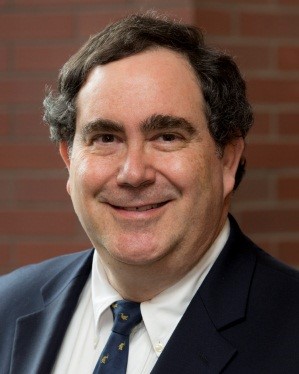 The Network is an interdisciplinary, international scholarly association. When it was created, a small number of us signed up and said we would be the founding members, but we had no idea how big the audience was going to be. I wanted to make sure we had at least two or three hundred people at our first meeting, but the first meeting completely blew past our expectations. We had 800 scholars and researchers from 33 different countries join us in New York in June 2012. It was terrific – I had an email conversation with a British scholar, and she brought 11 people she knew from seven countries. It wasn’t a matter of me working day and night to generate interest – there was such a latent demand. It has been wonderful to see how much people have been learning from one another through the Network. Work/family issues are obviously different in Scandinavia than they are in the US; there are also differences by discipline, by approach, by personal versus business versus public policy issues.
The Network is an interdisciplinary, international scholarly association. When it was created, a small number of us signed up and said we would be the founding members, but we had no idea how big the audience was going to be. I wanted to make sure we had at least two or three hundred people at our first meeting, but the first meeting completely blew past our expectations. We had 800 scholars and researchers from 33 different countries join us in New York in June 2012. It was terrific – I had an email conversation with a British scholar, and she brought 11 people she knew from seven countries. It wasn’t a matter of me working day and night to generate interest – there was such a latent demand. It has been wonderful to see how much people have been learning from one another through the Network. Work/family issues are obviously different in Scandinavia than they are in the US; there are also differences by discipline, by approach, by personal versus business versus public policy issues.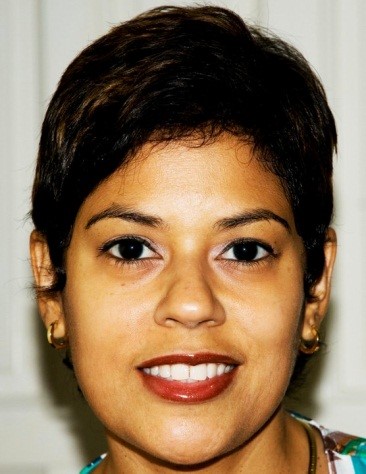 The inspiration for Do Good Jamaica started with a book drive. There’s a very big problem with our education system in Jamaica. Although we have a national library system that serves every community through branch libraries and mobile libraries, and there are reading programs for children, they didn’t have enough of the proper books. I thought, “Jamaicans love to break records – with Usain Bolt and Shelly-Ann Fraser-Pryce, we have the fastest man and the fastest woman in the world – so if I say, ‘Let’s break a Guinness record,’ I’ll get tons of books.” It worked – the world record was 242,624 books raised in seven days; we smashed that in the first day, and ended up with 657,061books in seven days. I was so inspired by the hundreds of organizations and hundreds of thousands of individuals that participated. It was fascinating to see how everyone could focus on a single goal and get somewhere.
The inspiration for Do Good Jamaica started with a book drive. There’s a very big problem with our education system in Jamaica. Although we have a national library system that serves every community through branch libraries and mobile libraries, and there are reading programs for children, they didn’t have enough of the proper books. I thought, “Jamaicans love to break records – with Usain Bolt and Shelly-Ann Fraser-Pryce, we have the fastest man and the fastest woman in the world – so if I say, ‘Let’s break a Guinness record,’ I’ll get tons of books.” It worked – the world record was 242,624 books raised in seven days; we smashed that in the first day, and ended up with 657,061books in seven days. I was so inspired by the hundreds of organizations and hundreds of thousands of individuals that participated. It was fascinating to see how everyone could focus on a single goal and get somewhere.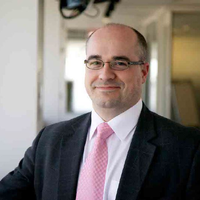 Trying to figure out how to allocate our scarcest resource – time – is a challenge. I think one of the ways I juggle it all is to continually step back to self-reflect – take a look at the situation, engage with those people I care about, and ask for their opinion. Both with my job and with my household, I think we’ve established a habit of honest and intentional communication.
Trying to figure out how to allocate our scarcest resource – time – is a challenge. I think one of the ways I juggle it all is to continually step back to self-reflect – take a look at the situation, engage with those people I care about, and ask for their opinion. Both with my job and with my household, I think we’ve established a habit of honest and intentional communication. Total Leadership really teaches you how to define what success means to you. In the path leading up to becoming a Wharton undergraduate, the next step is always prescribed for you – here’s what you have to do to advance to the next level, here’s what you have to do to get a certain mark in a class. The hurdles are very clear. I found myself after graduation in a highly coveted management consulting job where, again, the hurdles are very clear. But at some point, because I had done all this introspection and all this work in Total Leadership, I realized that those benchmarks weren’t the benchmarks by which I wanted to use to measure my own success. I realized that I was stressing out about benchmarks that don’t actually matter to the people who matter most to me. So I started to think, “How can I change this situation so that I’m able to live a life that’s successful by my own terms?” I started by clarifying what risks I was willing to take. I struck out on a new job hunt, and instead of taking the job that seemed like a continuation of the path that I was already on, I ended up interviewing in the marketing field, which felt better aligned with my values. I knew that even if this choice was going to decrease my long-term earning potential, this was a place where I could feel successful based on how I define success.
Total Leadership really teaches you how to define what success means to you. In the path leading up to becoming a Wharton undergraduate, the next step is always prescribed for you – here’s what you have to do to advance to the next level, here’s what you have to do to get a certain mark in a class. The hurdles are very clear. I found myself after graduation in a highly coveted management consulting job where, again, the hurdles are very clear. But at some point, because I had done all this introspection and all this work in Total Leadership, I realized that those benchmarks weren’t the benchmarks by which I wanted to use to measure my own success. I realized that I was stressing out about benchmarks that don’t actually matter to the people who matter most to me. So I started to think, “How can I change this situation so that I’m able to live a life that’s successful by my own terms?” I started by clarifying what risks I was willing to take. I struck out on a new job hunt, and instead of taking the job that seemed like a continuation of the path that I was already on, I ended up interviewing in the marketing field, which felt better aligned with my values. I knew that even if this choice was going to decrease my long-term earning potential, this was a place where I could feel successful based on how I define success. Before Total Leadership, I felt passionate all the time but I didn’t know why I was passionate or what my purpose was. I found that I was aggressively and ambitiously looking for results rather than engaging with the stakeholders in the four domains in my life. After learning Total Leadership, I now feel like I have a gyroscope that tells me where my center of gravity is.
Before Total Leadership, I felt passionate all the time but I didn’t know why I was passionate or what my purpose was. I found that I was aggressively and ambitiously looking for results rather than engaging with the stakeholders in the four domains in my life. After learning Total Leadership, I now feel like I have a gyroscope that tells me where my center of gravity is.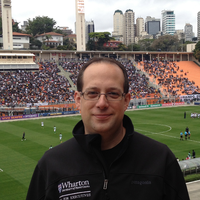 Total Leadership has allowed me to have many different conversations with the key important people – the stakeholders – and one of the things that I’ve learned is that you have to approach different relationships in different ways. Some of the changes you want to make may be more immediate but for the longer-term changes, if you can define what you want your life to look like, then you can start working backwards and plant the seeds for a better solution in the future.
Total Leadership has allowed me to have many different conversations with the key important people – the stakeholders – and one of the things that I’ve learned is that you have to approach different relationships in different ways. Some of the changes you want to make may be more immediate but for the longer-term changes, if you can define what you want your life to look like, then you can start working backwards and plant the seeds for a better solution in the future.